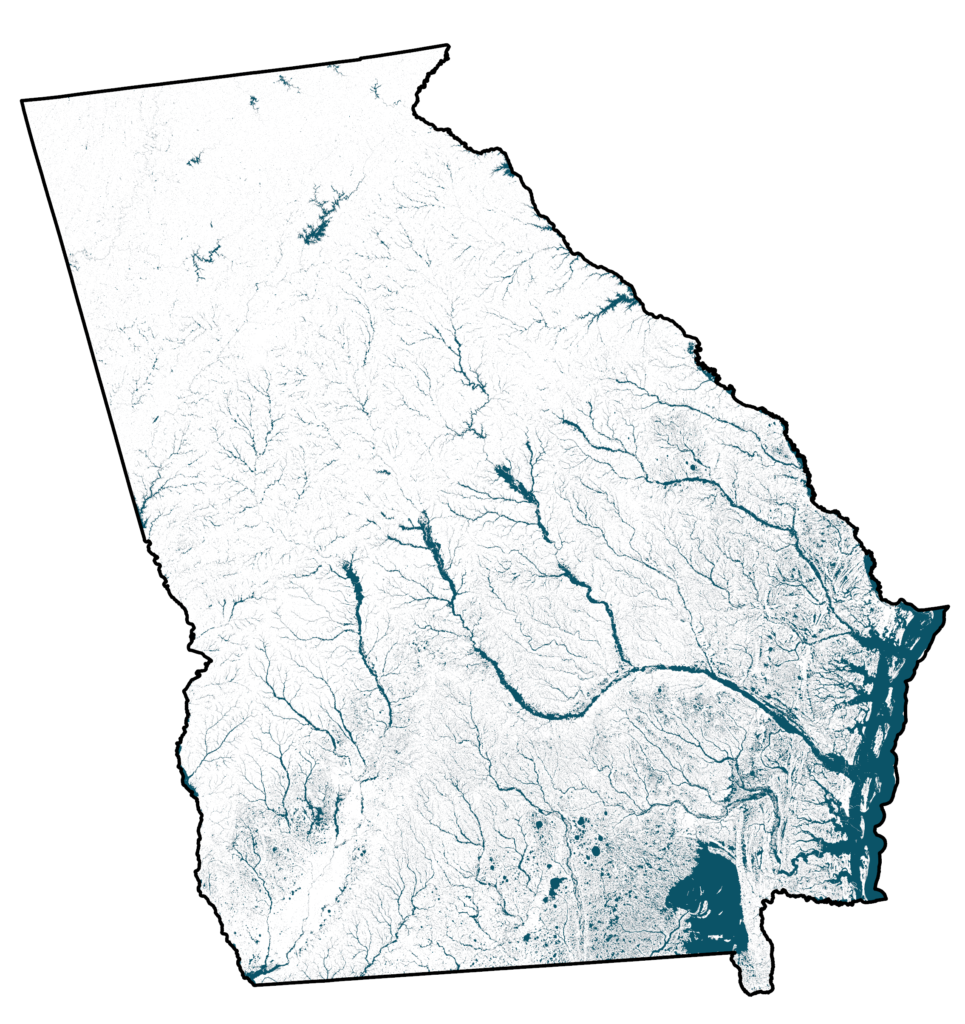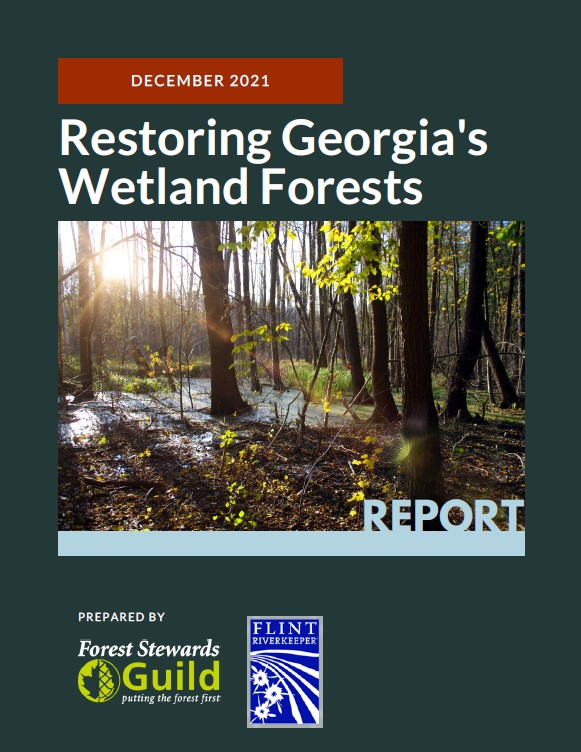Wetland Forest Conservation in Georgia

Wetland coverage and location in the state of Georgia (blue). Data from the National Wetlands Inventory.
Written by Dakota Wagner
At a Guild bottomland hardwoods workshop in Brunswick, Georgia in 2018 participants were asked: what are the limitations and barriers to wetland restoration and protection? Among others, answers included:
- the lack of education, awareness, and guidance for private landowners,
- the lack of wood product markets for many primary wetland tree species,
- the lack of low impact harvesting equipment, and
- the lack of a more comprehensive suite of conservation incentives aimed at wetland restoration.
Restoring Georgia’s wetlands has been a topic of great interest to that event’s cohost Gordon Rogers of Flint Riverkeeper for the last four decades. In 2019, a Sapelo Foundation grant provided an opportunity for the Guild to work with Flint Riverkeeper on an advocacy project focused on wetland restoration in Georgia.
We began our work with the vision to reverse the trend of wetlands loss and increase the acres of wetlands restored and conserved in Georgia’s forest landscapes. One primary goal was to build the foundation for a policy strategy to create a state-level incentive program for wetland forest conservation.
 After months of research, communicating with a diverse array of stakeholders, and weekly meetings, we are publishing the results of our findings. This report provides information about approaches to creating a viable program to incentivize wetlands conservation in Georgia. Our vision is to use our findings to influence key non-governmental players in Georgia to work with elected and appointed policymakers to develop a wetlands conservation incentives program that increases the acreage of functional wetlands in the state.
After months of research, communicating with a diverse array of stakeholders, and weekly meetings, we are publishing the results of our findings. This report provides information about approaches to creating a viable program to incentivize wetlands conservation in Georgia. Our vision is to use our findings to influence key non-governmental players in Georgia to work with elected and appointed policymakers to develop a wetlands conservation incentives program that increases the acreage of functional wetlands in the state.
Report Snapshot
Wetlands in the state of Georgia cover approximately 18.4 percent of the state’s landscape. Unfortunately, historical and current wetland losses due to land conversion have negatively impacted these sites. As an alternative to government regulations, voluntary wetland restoration will be critical to the long-term conservation of wetland areas. Our report aims to provide information about how to strategically approach the creation of a viable program to incentivize wetland conservation on private lands in the state of Georgia. Based on research findings and stakeholder input, a basic recommended program outline was identified.
In summary, this program should be targeted towards private forest landowners and aim to restore degraded wetlands to proper hydrological function, create and incentivize appropriate wetland forest management activity parameters, and protect wetland resources through long-term conservation easements. Economic incentive programs can often be structured to achieve greater conservation goals than would result from traditional regulation. This program, whether started from square one or incorporated into an existing program, will build on current regional conservation partnerships to further increase the capacity of wetlands conservation.
Editor’s note: the feature image of this article provided by the US Fish and Wildlife Service.
